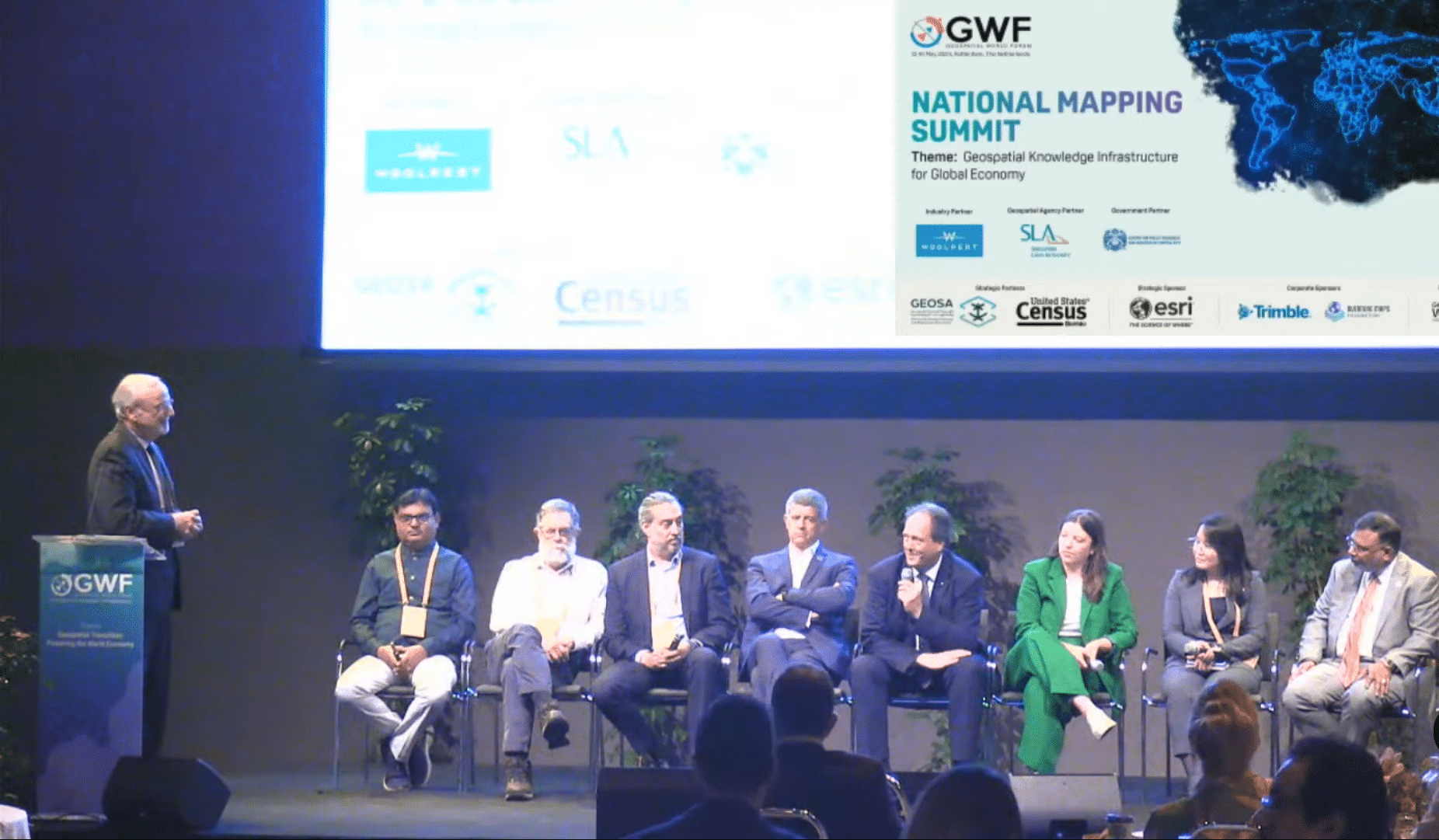There is a growing acknowledgement of the importance of Geospatial Knowledge Infrastructure (GKI) as the world around is increasingly reliant on geospatial data-driven decision-making. This is so as GKI has become a vital resource for informed policy development and sustainable growth.
Governments Enabling Development in Geospatial Ecosystem
Zaffar Sadiq Mohamed-Ghouse, Director, Advisory and Innovation, Woolpert Asia-Pacific opened the National Mapping Summit on the role of GKI in contributing to National Development by highlighting the importance of Governments requiring support and collaboration from the Private sector to develop a sustainable geospatial sector.
The Government utilises GKI to create a competitive environment for the private sector to invest and sustain. This also gives the Government the added benefit of nurturing small and medium-sized companies and start-ups
He emphasized saying, “GKI embedded in the wider Geospatial Ecosystem in future will present a thriving spatial marketplace for geospatial transaction between government, private sector and academia.”
The Necessity of Equal Access
Enkhjargal, Head of the Spatial Data Analysis Department, Center for Policy Research and Analysis, Mongolia talks about 18 fundamental data frames that Mongolia has adopted in its quest for using GKI for its National Development.
She elaborated on the need for research and analysis for implementing legislation measures, especially in developing an urban policy.
“High Traffic Agglomeration, and the Inaccessibility of 69% of the Mongolian Population to the National Public services in Mongolia are the problems to tackle for which there is a two-pronged solution of Equal Access and the 20 minutes city, which is the notion of living locally as in everything is within 20 minutes of walk from one’s place of residence.)
These solutions if implemented correctly can give Mongolians access to 90% of the public infrastructure.
Fast-Evolving Geospatial Markets
Keeping pace with the fast-evolving geospatial markets is a modern conundrum with a very urgent requirement to stimulate market growth and encourage a greater uptake in innovative applications.
Sile Martin, Senior Policy Adviser, UK Geospatial Commission finds the solutions to the above problems in two of its programs.
Remote Sensing Program and Population Moving Data Program. These programs heavily incorporate Data collection and methods of remote sensing.
“Our approach is to conduct market reviews, convene market discussions on developing a future vision to drive the use of EO across the public sector and harnessing the expertise of the DSIT Expert Exchange program,” she adds.
Why is Spatial Special?
As we know, GKI plays a significant role in integrating geospatial approaches, data, and technologies to deliver location-based knowledge, services, and solutions. Spatial Data is crucial in GKI. Why is it crucial?
Alejandro Guinea de Salas, President, EUROGI, Spain highlights 5 points, “Dimensionality, Scale, Proximity, Semantics and Ethics. Spatial needs a special needs a special effort to do 2 things, one is to Geotag large amounts of data and another is to develop local expertise to exploit.”
Integration of GKI has tremendous impact and value for various sectors. One such sector is mining. Dheeraj Kumar, Dy. Director and Project Director, IIT (ISM) DHANBAD, India says, “First we need to digitalize and then we can talk about Digitalization. The place to start is a digital and connected mine.
He highlighted this by giving a use case of how real-time mapping and monitoring is employed and utilized in mining.
Socio-Economic Impact
The socio-economic impact of GKIs extends beyond economic growth, with practically every sector of the economy affected by location-related data
Markus Jobst, Chief Information Officer, Federal Office of Metrology and Surveying talks about the socio-economic impact of GKI.
He emphasized how important is GKI in socio-economic impact.
“800 thousand people were employed in the metrology and surveying sectors with a value-added of 43 billion Euros just in 2021. One of the sectors that was highly impacted was precision farming where Geospatial positioning has helped with reducing the expenditure in precision farming.”
David Henderson, Chief Geospatial Officer, Ordnance Survey, UK adds to the above highlighting how important the world of geo data is in society.
“There should be an increased emphasis on placing data organisation and enrichment and maintenance and development of our data assets is the core objective”.
Geospatial Knowledge Infrastructure is not just a technological advancement but an intentional imperative for national development









